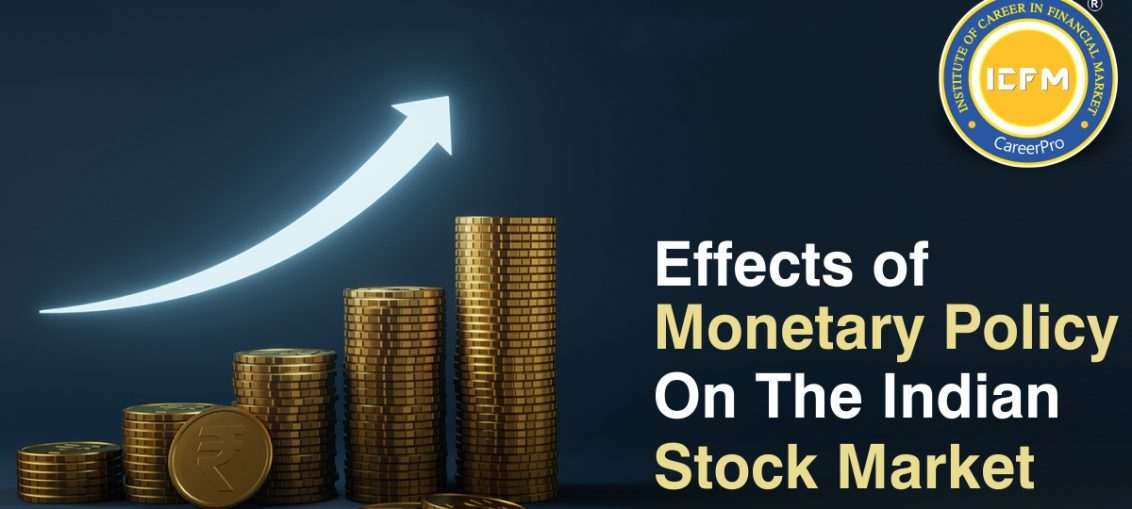
Monetary policy plays a crucial role in shaping a country’s economy, influencing various sectors including the Indian Stock Market.
The Indian Stock Market serves as a barometer of the country’s economic health and is closely linked to the monetary policy decisions made by the Reserve Bank of India (RBI).
In this blog post, we will explore the effects of monetary policy on the Indian stock market and delve into the factors that drive this relationship.
Monetary Policy Basics:
- Before delving into its impact on the stock market, let’s briefly understand what monetary policy entails.
- It refers to the actions taken by the central bank of a country to control the money supply, interest rates, and inflation.
- It is the responsibility of the Reserve Bank of India for formulating and implementing monetary policy in India.
Interest Rates and Stock Market Performance:
- One of the key tools of monetary policy is the manipulation of interest rates.
- The RBI adjusts the repo rate (the rate at which it lends to commercial banks) to influence borrowing costs and liquidity in the economy.
- Changes in interest rates can significantly impact the stock market.
- When interest rates are lowered, borrowing becomes cheaper, which stimulates investment and consumption. This, in turn, can boost corporate profits and increase stock market activity.
- Lower interest rates can also make equities more attractive compared to fixed-income investments, leading to a shift in investment from bonds to stocks.
- Conversely, when interest rates are increased, borrowing becomes more expensive, which can dampen economic activity.
- Higher interest rates may make bonds and other fixed-income securities more appealing compared to stocks, potentially leading to a decrease in stock market activity.
Inflation and Stock Market Performance:
- Controlling inflation is another important objective of monetary policy.
- Inflation erodes the purchasing power of money and can adversely affect the stock market.
- The RBI uses various measures such as open market operations and reserve requirements to manage inflation.
- When inflation is high, the RBI may adopt a hawkish monetary policy stance by raising interest rates to curb inflationary pressures.
- While this can stabilize prices, it can also increase borrowing costs and potentially dampen stock market performance, as higher interest rates make it more expensive for companies to raise capital.
- Conversely, when inflation is low, the RBI may adopt an accommodative monetary policy by lowering interest rates.
- This can stimulate economic growth, boost corporate profits, and positively impact stock market performance.
Foreign Institutional Investment (FII) Flows:
- Monetary policy decisions in India also have a significant impact on foreign institutional investment (FII) flows into the country.
- FIIs are key participants in the Indian stock market, and their investment decisions are influenced by factors such as interest rates, inflation, and the overall economic outlook.
- Changes in interest rates or monetary policy stances that make Indian investments more attractive can lead to increased FII inflows, which can drive up stock prices.
- Conversely, if monetary policy decisions are perceived as unfavorable or uncertain. It may result in FII outflows, putting downward pressure on stock prices.
Market Sentiment and Investor Confidence:
- Monetary policy decisions by the RBI have a broader impact on market sentiment and investor confidence.
- Clarity and consistency in policy actions, along with effective communication, play a crucial role in shaping investor expectations.
- When the central bank is perceived as proactive and effective in managing the economy. It can instill confidence in investors, leading to positive sentiment in the stock market.
- On the other hand, uncertainties or surprises in monetary policy decisions can create volatility and negatively impact investor confidence.
Conclusion:
The relationship between monetary policy and the Indian stock market is intricate and multifaceted. Interest rates, inflation, FII flows, and market sentiment are all interconnected factors that shape the performance of the stock market.
Tags: Share Market Institute, Stock Market Course, indian stock market course, Share Market Classes